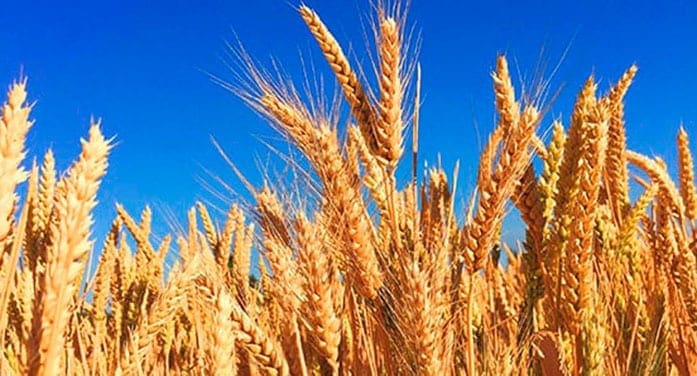 Humanity just got dealt another blow with Russia’s invasion of Ukraine. Just thinking of the human cost is unbearable. And the agri-food sector has already been impacted by the conflict in more ways than one.
Humanity just got dealt another blow with Russia’s invasion of Ukraine. Just thinking of the human cost is unbearable. And the agri-food sector has already been impacted by the conflict in more ways than one.
Ukraine is Europe’s breadbasket, so this conflict will affect global commodity markets in a meaningful way. Wheat and corn futures are slowly nearing record levels.
Ukraine is the ninth-largest producer of wheat in the world, producing slightly less than Canada yearly. Ukraine is also the fifth largest producer of corn, with 13 percent of all global exports. Agricultural activity takes up about 70 percent of the country’s land and about 25 percent of the world’s black soil is in Ukraine. The country has exceptional growing conditions.
But this conflict obviously includes Russia. And the two countries together account for 25 percent of global wheat exports. Barley and rye are also heavily produced in the region.
These factors combined could compromise many agri-food companies’ access to key ingredients.
The invasion has led to a ban on all commercial vessels in the inland Sea of Azov, which is the main connection to the Black Sea, where Ukrainian ports are located. Almost 90 percent of Ukrainian grain exports are transported by sea, and marine logistics in the region have been severely compromised.
Given what has been happening around the world over the last several months with supply-chain issues resulting from the COVID-19 pandemic, saying that food price inflation will occur as a result of this conflict is an understatement.
If you think Canada is immune to all of this, given our domestic agriculture production, think again. Agricultural commodities are traded on world markets, and what happens in Ukraine and Russia affects us. The world, especially the agri-food world, is deeply interconnected.
Oil is trading at around US$100 a barrel, the highest it’s been in more than six years. Russia exports about five million barrels of crude a day, and about half of that goes to Europe.
Countries are trying to penalize President Vladimir Putin’s regime without disrupting Russia’s energy exports, which shows how incredibly delicate the situation is and how Putin strategically chose his moment to invade.
And if energy costs haven’t been a factor in the current food inflation problem, they certainly are now. We expect an impact on transportation fees within weeks, if not days.
The fertilizer market has also been affected by this conflict. The region is a significant exporter of nitrogen, potassium and phosphorus fertilizers. The invasion last week increased fertilizer prices globally by more than $200 a tonne overnight. The higher prices aren’t great news for farmers looking to increase yields this year. Fertilizer was already quite expensive before the conflict in Ukraine.
Canadian farmers are likely to do well on the markets, but prohibitively expensive fertilizer prices could impact agricultural output in the Northern Hemisphere, including Canada. If Mother Nature doesn’t co-operate, this could be another challenging year for our farmers.
Price gouging in the industry has always been an issue and U.S. Agriculture Secretary Tom Vilsack has already notified companies not to inflate fertilizer prices unnecessarily. It’s not a sector most consumers know about, but without the proper soil science supported by effective fertilizers, the cost of our food just wouldn’t be the same.
And make no mistake, China is Russia’s ally. Putin is not only seeking to regain lost Soviet territory; he’s focused on restoring Russian influence. And controlling global food supply chains with China is one way to do it. Given their production, the two countries combined are agriculturally influential.
So Western economies are being destabilized – again. For two years, it was a virus; now, it’s a tyrant.
This conflict will bring a new layer of uncertainty to the agri-food sector at the worst possible time. And as consumers, we need to take a deep breath and hope the conflict doesn’t last long.
But we’ve been down this awful road before, so the prospects aren’t great. In the meantime, we need to support Ukrainians since they’re the victims of evil.
Dr. Sylvain Charlebois is senior director of the agri-food analytics lab and a professor in food distribution and policy at Dalhousie University.
Sylvain is one of our contributors. For interview requests, click here.
The opinions expressed by our columnists and contributors are theirs alone and do not inherently or expressly reflect the views of our publication.
© Troy Media
Troy Media is an editorial content provider to media outlets and its own hosted community news outlets across Canada.


